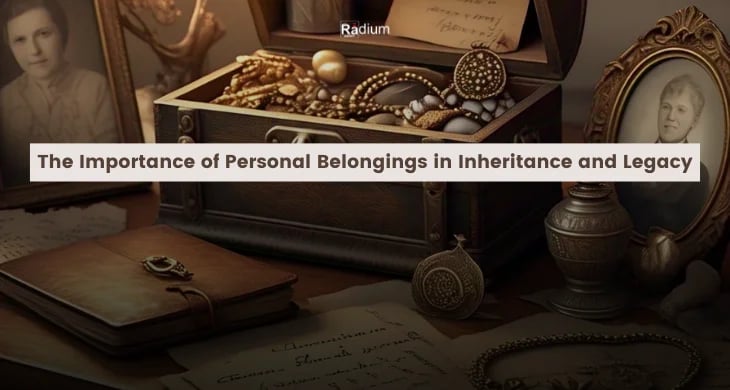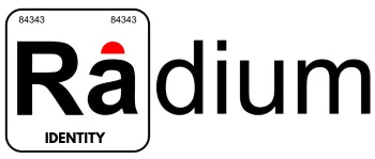The Importance of Personal Belongings in Inheritance and Legacy
Legacy is more than wealth; it's personal history, values & family bonds. Heirlooms, photos & letters preserve memories, connecting generations & keeping traditions alive.
Shubhanshi
4/8/20256 min read


The legacy is more than just the transfer of wealth; It is the maintenance of personal history, values and family connections. Personal luggage has emotional and emotional value, serving as the tangible reminders of the past. These things contribute to the shape of the inheritance that individuals leave behind, ensuring that their memories, traditions, and achievements have tolerated for the coming years.
The Emotional Value of Personal Belongings
Personal belongings, as compared to money, have a distinct deep significance that last for countless years and goes beyond remarkable generations. Each own family heirloom has its own story and private strange connection to everyone who cared approximately it. Family heirlooms, snap shots, and handwritten letters often end up valuable possessions because they maintain sentimental cost and hold precious reminiscences. These gadgets join individuals to their past, serving as reminders of a cherished one’s existence, struggles, achievements, and relationships. When these items get passed down in the own family, they preserve a own family's records and identity intact. This manner destiny generations will have some private connection to their ancestors too. Holding onto a grandmother’s necklace, a father’s journal, or an vintage own family picture can evoke feelings, stories, and training that would in any other case be forgotten. These tangible objects create a sense of belonging and continuity, providing consolation in times of grief and reinforcing circle of relatives bonds. In many cultures, non-public property play an vital position in rituals and remembrance ceremonies, symbolizing recognize for the departed and the continuation in their legacy. Passing down those cherished objects isn't always most effective an act of love however also a way of making sure that own family records and values continue to be alive for years yet to come. The power of personal property lies in their potential to bridge generations, maintaining traditions and private stories intact.
Preserving Cultural and Family Traditions
Inheritance is not just about the switch of wealth—it also includes traditions, testimonies, and knowledge that define a circle of relatives's identification. Personal assets inclusive of non secular artifacts, cultural apparel, handwritten manuscripts, and books maintain historic and cultural importance that extends past their material really worth. These gadgets offer precious perception right into a family’s background, ideals, and manner of existence, ensuring that cultural values are carried ahead via future generations. For instance, a family tradition would possibly permit a marriage dress flying down through generations, carry a unique item that can evoke rite memories, or pass down testimonies exceeded on by phrase of mouth. These testimonies of own family records and heritage assist hold the own family bonded together and their identity sturdy. Such heirlooms act as a bridge between past and present, fostering a experience of identification and belonging within a family. These things preserve an awful lot more than simply physical that means there's a whole history and an entire meaning all right too. Teaching younger generations approximately the memories at the back of those artifacts instills a feel of pride and appreciate for his or her heritage. Moreover, these gadgets serve as a means of transmitting customs, languages, and moral values, gambling a crucial role in strengthening cultural brotherly love. Without the upkeep of private belongings and their related narratives, many factors of a subculture will be misplaced over time, making it important to pass down these treasures with care and goal.
Legal Aspects of Inheritance
The distribution of personal belongings after a person’s passing is often governed by legal frameworks designed to ensure a fair and organized transfer of assets. In cases of passing, estates and inheritance rules leave no doubt as to how possessions should be doled out according to what the person who passed away wanted. Without proper documentation, disputes can arise between family members, leading to potential conflict and long legal battles. The establishment of a legally sound heritage plan is important to protect a person's property and maintain family harmony. A well drafted will ensure that passionate objects, heaven and other property access to your intended recipients without ambiguity. The probate court and the estate attorney run a legal system to ensure that everyone receives what they are legally entitled. They make sure that inheritance claims align with the law and that everything works properly and fairly. In a lot of different areas inheritance taxes also come into play. They're what affect how the good stuff gets passed on to the next generation. When folks go through this tough time and pass away without having an official will that shows who they want their things to go to, family and other legatees have to go by these specific rules. Those rules about how things are handed out are known as intestacy laws and they make sure no one ends up confused about what to do when that happens. In cases like this, the courts stick with strict policies that might every now and then clash with what a deceased person could have wanted. Therefore, it's far essential to put together legal documents that define the meant distribution of personal assets, minimizing the hazard of disagreements and retaining the sentimental and monetary value of the inheritance. Proper making plans allows households to honor the desires in their cherished ones whilst fending off unnecessary felony complications.
The Role of Identification in Inheritance
Proper identity and documentation of inheritance plays a crucial role in ensuring smooth transfer of property when preventing fraud and disputes. Heritage processes depend on clear records for proper ownership tests and determining the legal heirs of the estate. Digital records, legal documents, and inventory lists are the essential tools for protecting the right to inheritance. Governments and legal entities use identity systems such as birth certificates, Will and Estate inventories to certify the legacy and confirm the appropriate beneficiaries. For precious assets such as real estate, ancient items and jewelry, authentication certificates help establish a history of Provence and ownership. Without proper identity, disputes over inheritance claims can occur, leading to emotional distress and economic loss. Technological advancements have introduced digital solutions to inheritance tracking, such as blockchain-based property records and encrypted legal documentation. These systems provide a secure and transparent way to verify ownership and inheritance rights. Additionally, estate planning professionals advise individuals to maintain updated records of their personal belongings, including appraisals and notarized documents, to streamline the inheritance process. By integrating identification measures into real estate planning, families can ensure that personal heritage is preserved and sent down without battle. Recognizing the importance of proper identification not only protects an individual's wishes, but also maintains the integrity of the inheritance system.
Inheritance Beyond Material Objects
The inheritance is not limited to tangible property; It also includes intellectual property, personal values and lessons of life that shape the next generation. Many people leave something behind when they go, whether they are writing it, recording their thoughts, or assigning donations for the reasons they cared for. They want to ensure that their thoughts and dreams live after it is gone. These non-physical heritage often have a permanent impact on family members and society, affecting future generations and the way a person's legacy is affected. For example, moral will work as a means of passing reflections on will, personal philosophy, guiding principles and life experiences. These documents provide invaluable knowledge and guidance to the descendants, ensuring that a person's voice and ideals continue to be inspired. Similarly, mentorship, education and philanthropic contributions create permanent heritage that are beyond personal property. Being a strong family tree full of hard work and inheritance of important values means that families can build on top of generations before being planted in their heart and mind. Many historical figures and influential leaders have surpassed personal writing, speeches and artifacts that continue to shape the society for a long time after his death. Recognizing the importance of non-content heritage highlights the widespread meaning of heritage-one that crosses physical money and promotes permanent personal and social impact. By shaping his legacy deliberately, individuals can leave something beyond the property. They can pass on really valuable things like lessons and important ideas that really do affect future people.
The Evolution of Inheritance in the Digital Age
With the advent of technology, inheritance has evolved beyond physical objects to include digital assets such as social media accounts, cryptocurrency, and digital intellectual property. The online and digital revolution and new monetary tech has brought up both demanding situations and interesting opportunities for human beings in drawing up their wills and managing their inheritance. Many people now own considerable virtual assets, starting from cloud-saved pics and emails to on line corporations and cryptocurrency holdings. Unlike traditional bodily inheritance, digital property require specialized criminal provisions to make certain their proper transfer and management. Modern estate planning involves taking into account digital assets as well, and includes instructions on how heirs are able to access and manage those things .Passwrd managemnt, encrypted vaults, digital wills has become essential components of contemporary inheritance planning. In addition, some online platform provides legacy settings that allow users to designate beneficiaries for their accounts. Governments and legal entities that continuously adapt to eliminate the complications of digital heritage, ensuring that digital legs are safe and passed safely. As technology continues to grow, individuals should include digital wealth in their estate planning to ensure difficulties and their virtual heritage to be accessible to their loved ones. The digital age has redefined the method of inheritance, emphasizing the importance of protecting both materials and virtual wealth for future pay generations.
Conclusion
Personal belongings play a crucial role in inheritance and legacy, preserving emotional connections, cultural heritage, and family values. Proper legal documentation and identification are essential to protect these assets and ensure they are passed on according to the wishes of the deceased. In an era where both physical and digital assets hold value, planning for inheritance is more important than ever to safeguard personal legacies for future generations.
Solutions
Advanced identity verification and KYC services.
Quick Access
Access
© 2025. All rights reserved.
